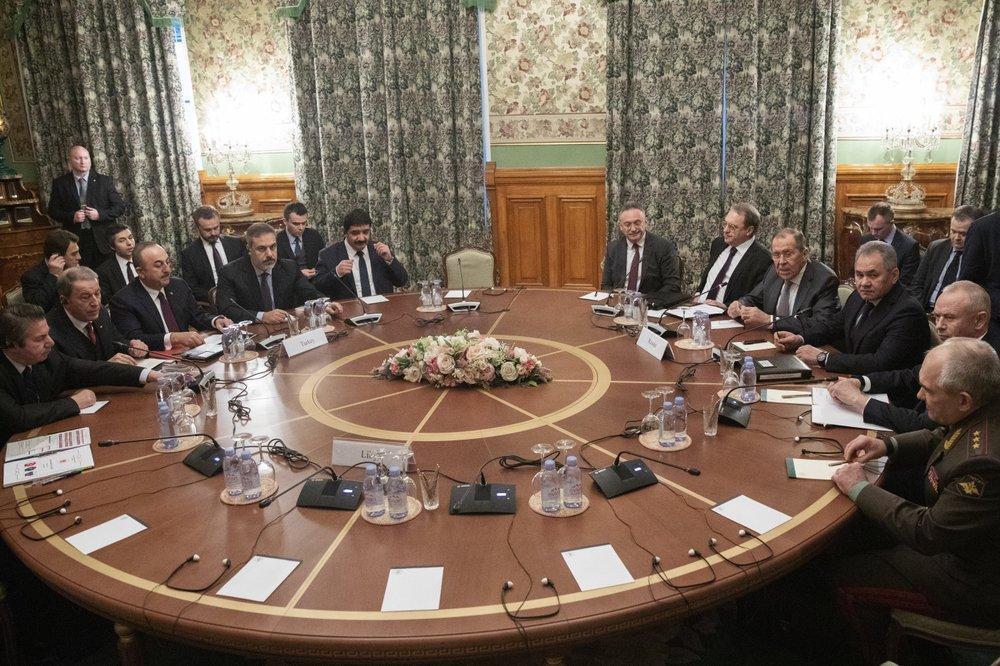Ankara not ‘pessimistic’ about Libya, says foreign minister
Sevil Erkuş – ANKARA

Foreign and defense ministers of Russia and Turkey met as part of an effort by Moscow and Ankara to sponsor talks between rival parties in Libya in the Russian capital, Jan. 13, 2020. (AP Photo/Pavel Golovkin, Pool)
Turkey’s foreign minister on Jan. 15 said that Ankara is not “pessimistic” concerning Libya but that the east Libya-based military commander Khalifa Haftar’s forces “do not want peace.”
“We are not pessimistic, but the truth is Haftar does not want peace,” Mevlüt Çavuşoğlu said.
The minister’s remarks came during the “Turkish Foreign Policy in the Age of Global Uncertainty” panel of the think tank Foundation for Political, Economic and Social Research (SETA) in the capital Ankara.
In his speech, Çavuşoğlu said that if street fights erupt in Tripoli, the conflict can go on for many years, claiming many lives, and will lead to a potential separation of Libya.
Çavuşoğlu also said Haftar leaving the Jan. 13 talks for a ceasefire in Libya was “disappointing.”
“I saw that it was a disappointment for our Russian friends as well. They did everything in their power and continue to do so,” he said.
“I hope this agreement, a joint declaration, will be signed before the Berlin [summit] so that we can go to Berlin with more hope,” he added.
The minister also conveyed his wishes for a permanent ceasefire agreement during the Berlin summit and then a political process can commence in Libya.
He said that Haftar does not want a political process like the Syrian regime and seeks a “military solution.”
Çavuşoğlu identified the agreements made between Libya and Turkey as “Turkey’s power on the desk,” saying, “Everyone in the Mediterranean, including Greece, we are willing to make a memorandum of understanding or agreement. But Turkey should not be excluded.”
Libya’s warring leaders made some progress at indirect peace talks in Moscow on Jan. 13 but failed to agree on an open-ended ceasefire to end a nine-month war over the capital Tripoli.
Haftar left Moscow without signing a ceasefire agreement drafted at the Moscow talks and asked for two days to discuss the truce, Russia’s defense ministry said on Jan. 14.
Meanwhile, Germany on Jan. 14 said it will host a conference on Jan. 19 in Berlin to support the United Nations’ effort to achieve peace and reconciliation in Libya after months of violence.
Representatives from the United States, Russia, Britain, France, China, Turkey, Italy and the U.N. will be among the participants, said the German government in a statement.
Germany has also invited Fayez al-Sarraj, who heads the internationally-recognized government in Tripoli, and Haftar, it said.
















